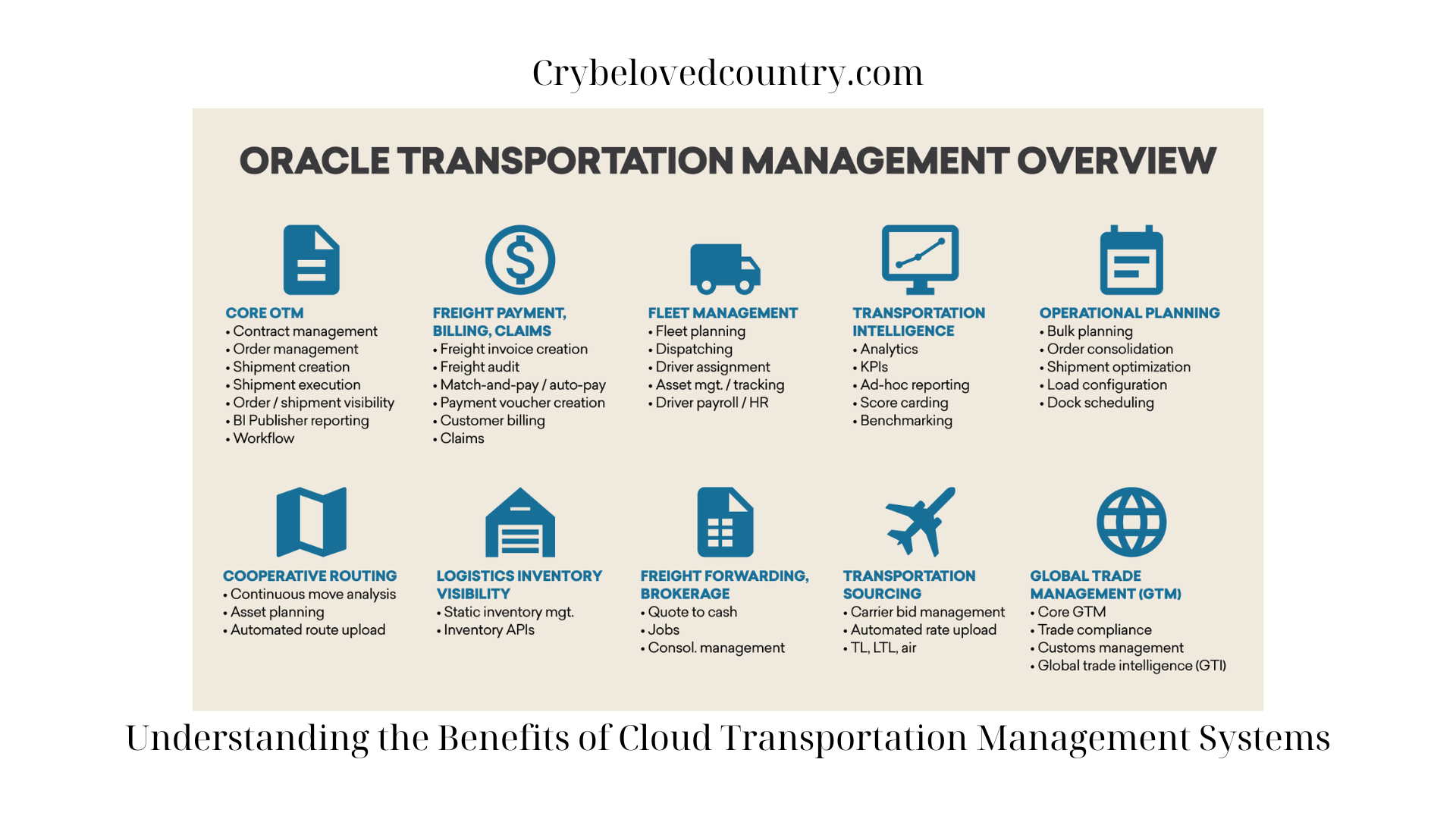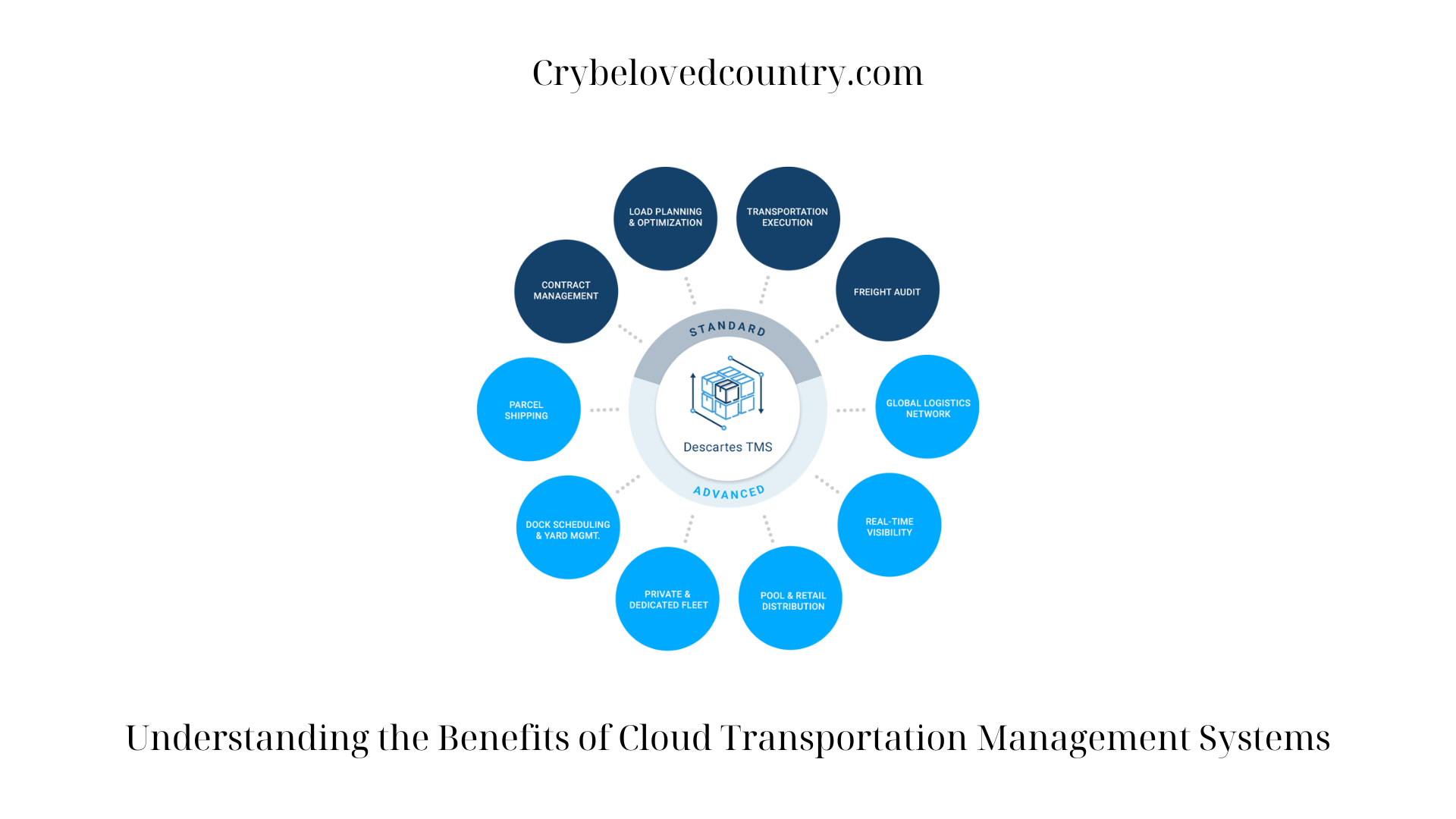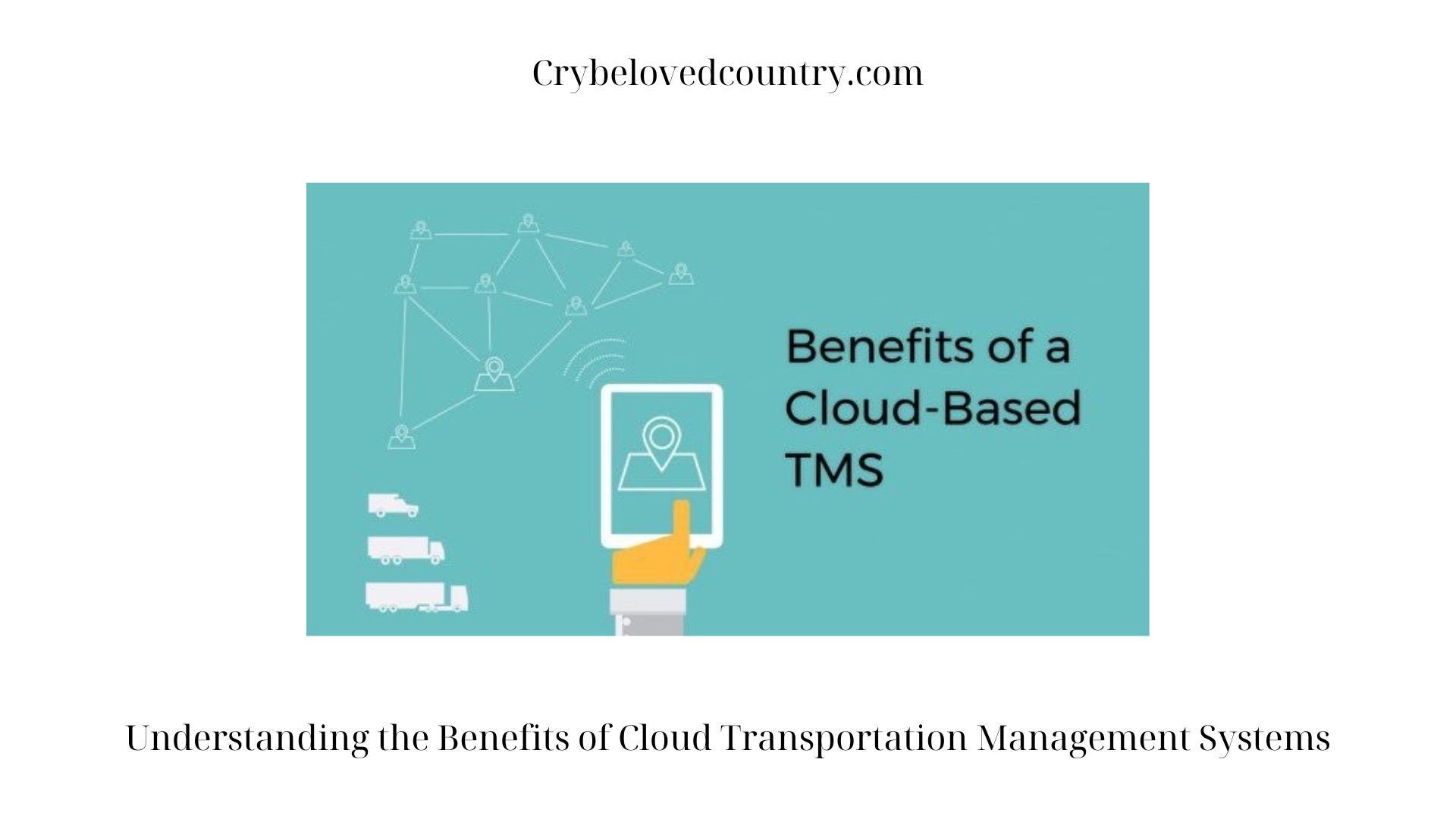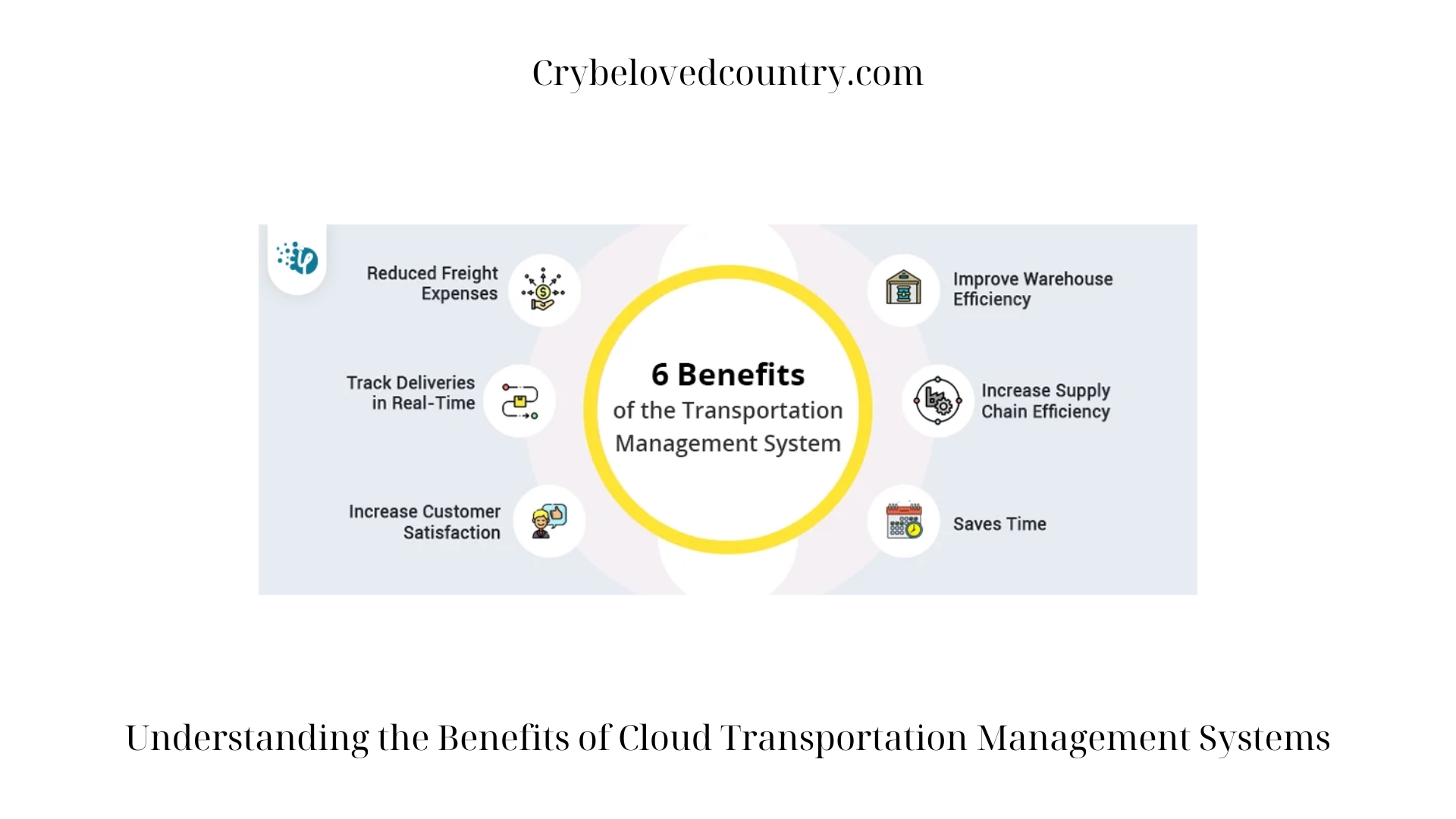In today’s fast-paced and interconnected world, efficient transportation management is crucial for businesses to streamline their supply chain operations. Cloud transportation management systems have emerged as a game-changer, revolutionizing the way companies manage their logistics and transportation processes. In this article, Crybelovedcountry will delve into the benefits of cloud transportation management systems, exploring how they optimize operations, enhance visibility, and drive overall efficiency. By understanding the advantages they offer, businesses can make informed decisions about adopting these systems to gain a competitive edge in the dynamic world of logistics.
Understanding the Benefits of Cloud Transportation Management Systems

- The Evolution of Transportation Management Systems:
Traditional transportation management systems (TMS) were often housed on-premises, requiring significant investments in hardware, software, and maintenance. However, the advent of cloud computing has transformed the landscape of TMS, offering a more flexible and scalable solution. Cloud transportation management systems leverage the power of the cloud, enabling businesses to access and manage their transportation processes through web-based platforms. This shift to the cloud brings a myriad of benefits that traditional systems cannot match. - Enhanced Accessibility and Collaboration:
One of the primary advantages of cloud transportation management systems is the ease of accessibility they provide. As long as there is an internet connection, users can access the system from anywhere, at any time, using any device. This accessibility fosters seamless collaboration among teams, regardless of their physical location. From shippers to carriers, logistics managers to warehouse personnel, everyone involved in the transportation process can access real-time data, collaborate on shipments, and make informed decisions. This level of accessibility and collaboration leads to improved communication, faster decision-making, and greater overall efficiency. - Real-Time Visibility and Tracking:
Cloud transportation management systems offer real-time visibility into various aspects of the transportation process. Businesses can track shipments, monitor inventory levels, and gain insights into the status of deliveries at any given time. This visibility enables proactive management of transportation operations, allowing businesses to address potential issues promptly. By tracking shipments in real time, businesses can identify bottlenecks, optimize routes, and make adjustments to ensure timely and efficient delivery. Real-time visibility also enhances customer satisfaction, as businesses can provide accurate shipment updates and proactively address any delays or issues. - Optimization of Route Planning and Load Consolidation:
Efficient route planning and load consolidation are critical for reducing transportation costs and optimizing resources. Cloud transportation management systems offer advanced algorithms and optimization capabilities that automatically analyze multiple variables, such as delivery windows, carrier capacity, and shipment volumes, to determine the most cost-effective and efficient routes. These systems consider factors like traffic conditions, fuel costs, and carrier preferences to optimize the allocation of shipments and consolidate loads, leading to reduced transportation expenses, improved resource utilization, and minimized environmental impact. - Automation and Streamlined Processes:
Cloud transportation management systems automate various manual processes, eliminating time-consuming and error-prone tasks. From order management and freight rating to carrier selection and invoicing, these systems streamline the entire transportation process. By automating routine tasks, businesses can free up valuable time and resources, allowing employees to focus on more strategic activities. Automation also reduces the risk of human errors, ensuring accurate data entry, timely documentation, and seamless integration with other systems within the supply chain ecosystem.

- Data Analytics and Performance Monitoring:
Cloud transportation management systems generate a wealth of data that businesses can leverage to gain valuable insights and make data-driven decisions. These systems capture and analyze data related to transportation costs, carrier performance, delivery times, and other key performance indicators. By harnessing this data, businesses can identify trends, spot inefficiencies, and optimize their transportation strategies. Data analytics capabilities enable businesses to monitor carrier performance, track key metrics, and negotiate more effectively with carriers based on objective performance data. - Scalability and Flexibility:
Cloud transportation management systems offer scalability and flexibility that traditional systems cannot match. Whether a business is small or large, cloud-based solutions can easily scale to accommodate changing needs and growing volumes. As the business expands or experiences seasonal fluctuations, the cloud infrastructure can adapt to handle increased transaction volumes without significant investments in hardware or software upgrades. This scalability and flexibility empower businesses to respond quickly to market demands, seize new opportunities, and remain agile in a rapidly evolving business environment. - Cost Savings and ROI:
Implementing a cloud transportation management system can result in significant cost savings for businesses. By optimizing routes, consolidating loads, and automating processes, businesses can reduce transportation costs, minimize manual labor, and improve overall operational efficiency. The cloud-based model eliminates the need for upfront capital investments in hardware and software, reducing IT infrastructure costs. Additionally, businesses can benefit from a subscription-based pricing model, paying only for the services they use. These cost savings, coupled with the increased visibility, streamlined processes, and improved customer satisfaction, contribute to a positive return on investment (ROI) for businesses. - Integration with Supply Chain Ecosystem:
Cloud transportation management systems seamlessly integrate with other systems within the supply chain ecosystem. They can integrate with enterprise resource planning (ERP) systems, warehouse management systems (WMS), order managementsystems, and other critical components of the supply chain. This integration enables data synchronization, enhances end-to-end visibility, and streamlines the flow of information across various processes. By integrating with other systems, businesses can achieve a holistic view of their supply chain operations, enabling better decision-making, improved coordination, and enhanced overall performance. - Competitive Advantage and Future Growth:
In today’s highly competitive business landscape, leveraging advanced technologies is essential for gaining a competitive edge. Cloud transportation management systems provide businesses with the tools and capabilities to optimize their transportation operations, improve customer service, and drive overall efficiency. By adopting these systems, businesses can enhance their agility, responsiveness, and operational excellence. Furthermore, as the transportation industry continues to evolve, cloud-based solutions will evolve as well, incorporating emerging technologies such as artificial intelligence, machine learning, and predictive analytics. Embracing cloud transportation management systems positions businesses for future growth and positions them as industry leaders.

Conclusion:
Cloud transportation management systems have transformed the way businesses manage their transportation processes. By offering enhanced accessibility, real-time visibility, optimized route planning, automation, and data analytics capabilities, these systems bring numerous benefits to businesses. From cost savings and improved efficiency to better collaboration and customer satisfaction, the advantages of cloud transportation management systems are undeniable. As the logistics landscape continues to evolve, businesses must embrace these systems to stay ahead of the competition, drive innovation, and achieve sustainable growth in an increasingly interconnected world.
